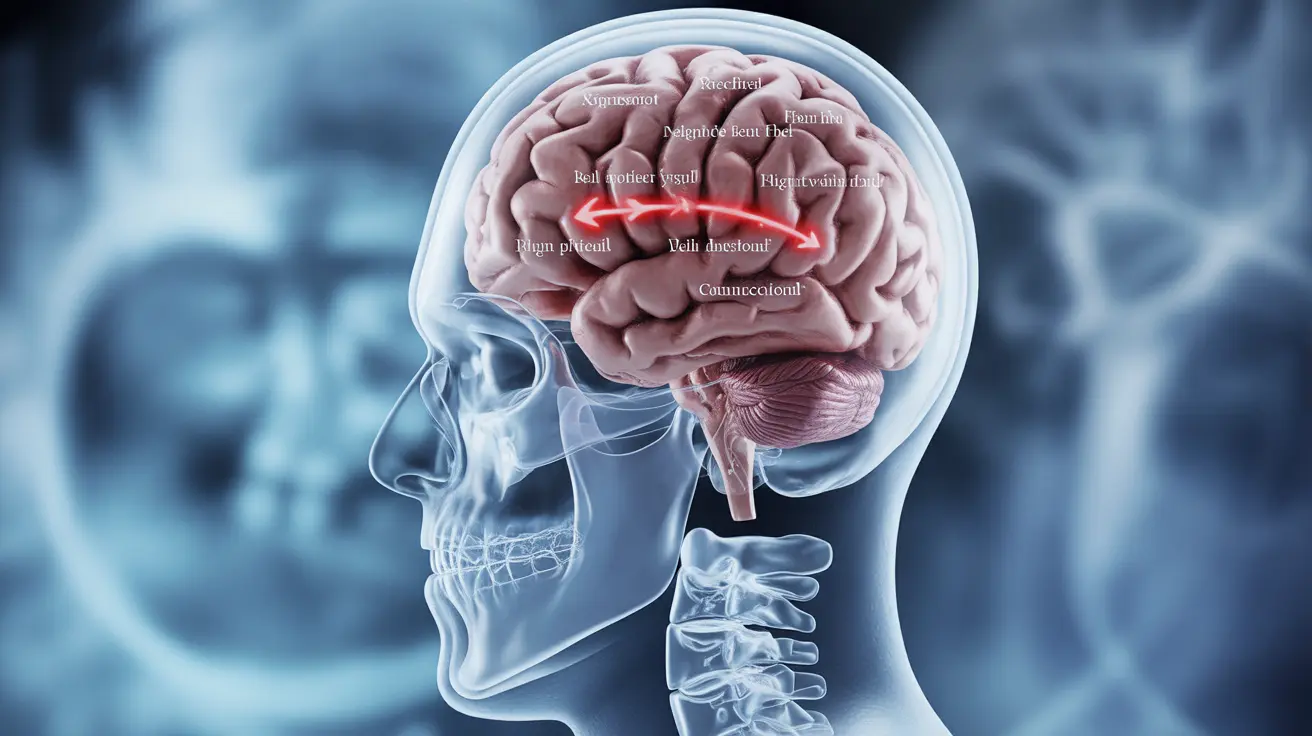A concussion is a type of traumatic brain injury that occurs when a blow to the head or body causes the brain to move rapidly back and forth inside the skull. While many people associate concussions with sports injuries, they can happen during any activity that involves head trauma, from car accidents to simple falls. Understanding the signs, symptoms, and proper treatment of concussions is crucial for ensuring proper recovery and preventing long-term complications.
Whether you're an athlete, parent, or caregiver, knowing how to recognize and respond to a potential concussion can make a significant difference in recovery outcomes. This comprehensive guide will help you understand what to watch for and the steps to take if you suspect a concussion has occurred.
Common Signs and Symptoms of a Concussion
Concussion symptoms can appear immediately after the injury or develop over several hours or days. The most frequent indicators include:
- Headache or pressure in the head
- Confusion or feeling "foggy"
- Dizziness or balance problems
- Memory problems, especially about the injury
- Nausea or vomiting
- Sensitivity to light and noise
- Changes in sleep patterns
- Difficulty concentrating
Physical symptoms may be accompanied by emotional changes such as irritability, anxiety, or mood swings. It's important to note that symptoms can vary significantly between individuals, and not all symptoms may be present in every case.
Diagnostic Process and Medical Evaluation
When evaluating a potential concussion, healthcare providers typically follow a comprehensive assessment protocol that includes:
- Detailed review of the injury circumstances
- Neurological examination
- Cognitive function testing
- Balance and coordination assessment
- Vision and reflexes evaluation
In some cases, imaging tests such as CT scans or MRI may be ordered to rule out more severe brain injuries, though these tests typically cannot detect a concussion directly.
Treatment Approaches and Recovery Guidelines
The cornerstone of concussion treatment is physical and cognitive rest, especially in the initial days following the injury. This typically involves:
- Limiting physical activities
- Reducing screen time (phones, computers, TV)
- Getting adequate sleep
- Avoiding activities that worsen symptoms
- Gradually returning to normal activities under medical guidance
The "return-to-play" and "return-to-learn" protocols should be carefully followed, with activities resumed only when symptoms have significantly improved and medical clearance has been given.
Recovery Timeline and Expectations
Most people recover from a concussion within 7-14 days, though this can vary considerably based on factors such as:
- Severity of the initial injury
- Previous history of concussions
- Age and overall health
- Adherence to recovery guidelines
- Individual healing rates
Some individuals may experience post-concussion syndrome, where symptoms persist for weeks or months after the initial injury.
When to Seek Emergency Care
Certain symptoms require immediate medical attention. Seek emergency care if you observe:
- Loss of consciousness
- Severe or worsening headache
- Repeated vomiting
- Seizures
- Increased confusion or agitation
- Weakness or numbness in any part of the body
- Slurred speech
- One pupil larger than the other
Frequently Asked Questions
What are the most common symptoms of a concussion to watch for after a head injury?
The most common symptoms include headache, confusion, dizziness, memory problems, nausea, sensitivity to light and noise, and changes in sleep patterns. Emotional changes like irritability or anxiety may also occur.
How is a concussion diagnosed by doctors and what tests might be needed?
Doctors diagnose concussions through a combination of physical examination, neurological tests, and cognitive assessments. While imaging tests like CT scans may be used to rule out more serious injuries, they typically cannot detect concussions directly.
What are the recommended treatments and rest guidelines for recovering from a concussion?
The primary treatment involves physical and cognitive rest, especially in the early days after injury. This includes limiting physical activities, reducing screen time, getting adequate sleep, and gradually returning to normal activities under medical supervision.
How long does it usually take to fully recover from a concussion?
Most people recover from a concussion within 7-14 days, though recovery time can vary significantly between individuals. Some may experience symptoms for several weeks or months.
When should I seek emergency medical care for concussion symptoms?
Seek immediate medical attention for symptoms such as loss of consciousness, severe or worsening headache, repeated vomiting, seizures, increased confusion, weakness or numbness, slurred speech, or unequal pupil size.




